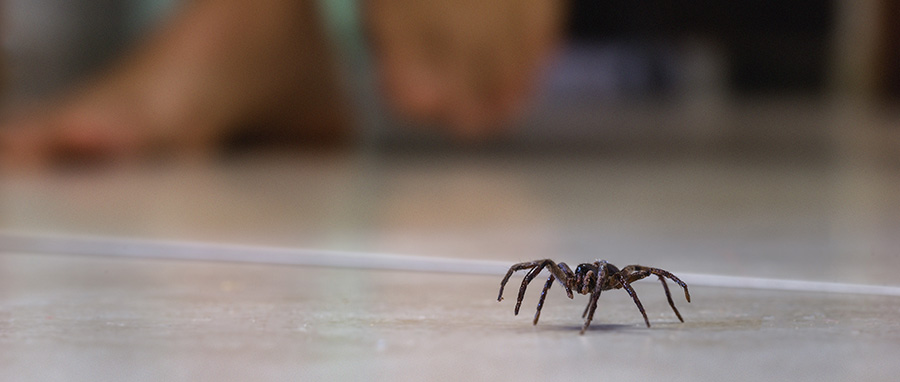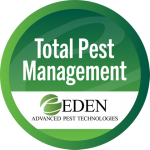Who doesn’t love fall? Whether you’re a fan of football or pumpkin spice, brisk walks through the changing foliage or cozy evenings by the fire, there’s something for everyone. However, it’s not just humans that like the change in season–our creepy crawly critters also love the drop in temperature. Here’s a look at some of the spiders you may encounter this Autumn and why they’re so common this time of year.
Why Are Spiders So Common In The Fall?
Bees, mosquitoes, flies… a lot of pests seem to disappear as soon as Autumn rolls around. So why does it seem like all the spiders come out of the woodworks when temperatures start to drop? While spiders aren’t actually more common in the fall, you’re more likely to see them for a few reasons:
- Food sources move indoors: When the weather gets cold, a lot of insects move inside for warmth and shelter—and spiders follow them indoors to maintain a constant source of food.
- Fall is mating season for some species: There are some types of spiders, like sac spiders or hobo spiders, that primarily breed in the Autumn. This means spiders are more likely to be out and about while searching for a mate.
- Your home offers shelter: Flies and other insects aren’t the only ones impacted by cold weather; spiders also need shelter! In addition to their food source moving indoors, your home provides plenty of warmth for spiders to survive the cold season.
Types Of Spiders That Come Out In Autumn
As temperatures cool and leaves begin to change, the fall season brings about shifts in the behavior and activity of various spider species. In Spokane, WA and Coeur d'Alene, ID, you’re most likely to see these spiders in the fall:
American House Spider
The American House Spider is a common pest found all across North America, including Washington. They are classic cobweb spiders, preferring to build webs in hidden corners across your home such as basements, closets, and crawl spaces.
American house spiders seek shelter indoors in the fall where they find ample prey and suitable nesting sites. While not harmful to humans, their unsightly webs can cause quite a fright if encountered in dark recesses.
Hobo Spider
The Hobo Spider is considered by many to be aggressive. It builds funnel-type webs and is often mistaken for wolf and brown recluse spiders due to its brown coloration. For many years, it was considered venomous and dangerous to humans; however, it was recently removed from the CDC’s list of “dangerously venomous spiders.” Of course, just because they’re not deadly doesn’t mean they aren’t painful.
In the fall, hobo spiders become more active as they search for mates, often venturing into homes and buildings in pursuit of potential partners and suitable nesting locations. If you have a bunch of hobo spiders around your space, it may be worth talking to an exterminator.
Cross-Orb Weaver
The Cross-Orb Weaver is found all across the world and is known for building the traditional-shaped webs that we all think of when October rolls around. When threatened, it may bounce up and down in the center of its web, but they’re not considered dangerous to human health.
As temperatures cool in the fall, cross-orb weavers thrive in gardens and outdoor spaces, spinning intricate webs to catch insects seeking refuge from the changing weather.
Giant House Spider
The Giant House Spider is most often found indoors in October. While leg span varies, some have leg spans of up to 4 inches. They are often found first thing in the morning in bathtubs and spouts searching for water, able to get in but unable to get out.
In the fall, giant house spiders are frequently observed indoors as they seek warmth and shelter, often establishing webs in dark, undisturbed corners of homes. Though their large size and fast speeds can make them intimidating, they aren’t known to hurt humans.
Keep Your Space Spider-Free
If some eight-legged friends or any other pest finds comfort in your home this season, contact Eden Spokane today. We’ll work with you to keep your home just that–yours and yours alone. Our spider exterminators offer fast removals that will give you lasting peace of mind. Just contact us to schedule your inspection!
Back to Spider Exterminators & Control

